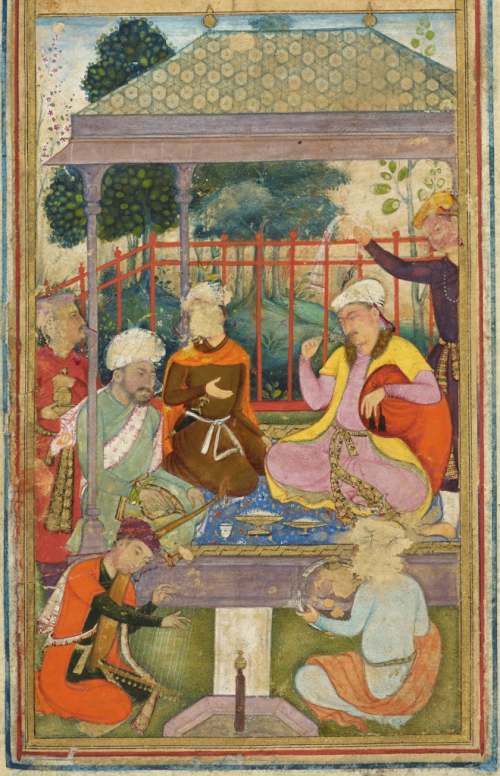Convivial Consumption: Food and Drinks in the Courtly Assemblies of Sultanate India

This paper will consider the practice of eating and drinking in Sultanate India. Through a focus on one particular occasion, the convivial assembly or majlis, I will consider the decisions that factored into the provision and the consumption of refreshments. Despite seeming to be an occasion of leisured conviviality; a place of conversations, poetic or musical recitals, intellectual debates, jesting and story-telling, the majlis was far from a space of comfortable intimacy, where inhibitions could be relaxed. Rather, the practices of sociability enacted in this space became opportunities for the display of refined behavior, the negotiation of status and moments of self-fashioning. Through a discussion of recipe books, contemporary medical literature, classic Persian texts on ethics (akhlāq) and historical chronicles, I examine how food and drink was thought to act on the body and the soul of the consumer, and the ways in which individuals tried to mobilise these understandings to foster particular outcomes amongst the gathered company.
Emma Flatt is a Visiting Associate Professor at NUS with a joint appointment in the South Asia Studies Programme and the History Department. She has a PhD in History from the School of Oriental and African Studies (2009). Before coming to NUS, she was a tenured Associate Professor of History at the University of North Carolina, Chapel Hill, and, previously, an Assistant Professor in the History Programme at Nanyang Technological University. Her work focuses on the social and cultural history of early modern India and she is the author of The Courts Of The Deccan Sultanates: Living Well In The Persian Cosmopolis, (Cambridge: Cambridge University Press, 2019); the co-author (with Daud Ali) of Garden and Landscape Practices in Precolonial India: Histories from the Deccan, (Delhi: Routledge, 2011), as well as the author of various journal articles on the histories of astrology, wrestling, magic, friendship and perfumes. She is currently working on three new research projects: the first is a study of the esoteric sciences in the sultanate of Bijapur; the second is a history of the cultural construction of eating and the sense of taste in early modern India, and the third is an investigation into the history of childhood and play in medieval and early modern India.
Image from British Library

